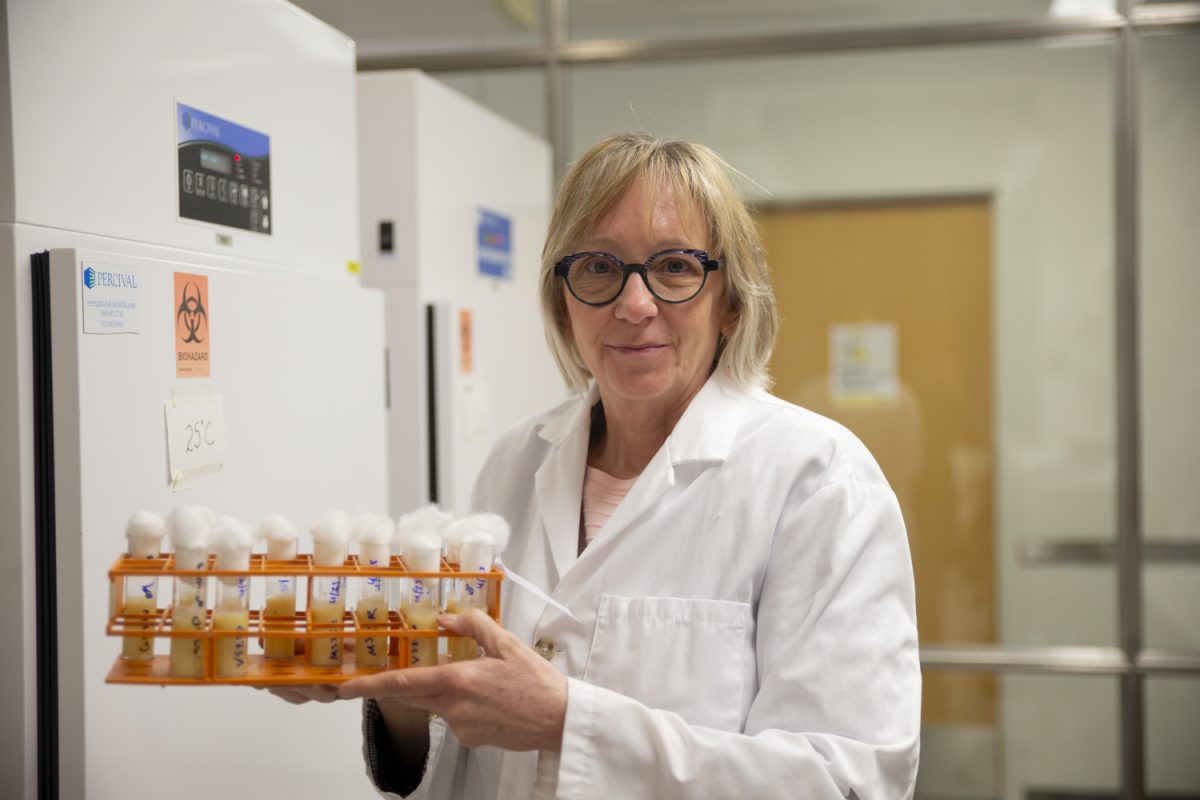The American Association for the Advancement of Science, or AAAS, selected four University of Iowa faculty members as fellows for the national organization.
It is the largest general scientific society and also publishes the academic journal Science. The organization named 502 scientists and scholars as this year’s AAAS fellows across the country.
To be considered for the fellowship, the organization takes member nominations in the form of peer referrals, meaning each UI faculty member named a fellow was done so at the request of a peer.
CEO Sudip Parikh previously said each newly elected fellow “embodies scientific excellence” to lead the next generation of scientists.
Bob McMurray, a professor in the UI psychological and brain sciences department, received the fellowship for his studies on human language. He said his work is an intersection of efforts in the linguistics department, speech and hearing sciences at UI Health Care, and the psychology department.
McMurray said the primary avenue for his research, which goes on at three different laboratory locations on and off campus, is eye tracking.
Most eye-tracking experiments, McMurray said, involve studying the subject’s eye response to words presented on a screen while a similar word is played audibly. McMurray said this can show important information about the development of language. He said this procedure was developed initially by psycholinguist and UI alum Michael Tanenhaus in the 1970s.
McMurray said his goal is to use the information they obtain from these experiments to develop more efficient training programs for children to “kick language processing into higher gear.”
McMurray said he was surprised to be selected for the AAAS fellowship.
“You look at the top tier and it’s all these people that I idolized when I was an undergraduate. The people that showed up in the textbooks that I learned from,” he said. “It’s a cool honor.”
Lori Wallrath, a UI professor of biochemistry and molecular biology, received the fellowship for her research on DNA in the nucleus and the expression of genes.
Wallrath studies the relationship between chromatin — a specific part of the cell containing DNA and proteins — and a barrier around the nucleus called the nuclear envelope.
“I became very interested in particular mutations in genes … that cause a wide spectrum of diseases … everything from early onset aging to fat disorders, to loss of nerve sensation,” Wallrath said.
Wallrath said AAAS has high standards, and that for her, the fellowship signifies scientific excellence and integrity.
“I felt really humbled and honored because this is a unique award where you’re nominated by your peers,” Wallrath said regarding the fellowship. “The fact that peers nominate you and support you says a lot about their appreciation of your research.”
Michael Feiss, a UI professor emeritus, worked in the microbiology department before his retirement in 2010. However, his lab remained open until 2021.
RELATED: UI researchers identify brain area affected by Parkinson’s treatment side effects
Feiss said his research related to studying viruses and examining the processes behind virus behavior. His research, he said, has facilitated greater understanding and study of common pathogenic viruses.
“It’s a treat. It’s a tribute to the students that have been in the lab and research assistants over 40 years,” Feiss said.
Kevin Campbell, a professor of molecular physiology and biophysics, conducts research focused on muscular dystrophy.
Campbell was unavailable for an interview at the time of The Daily Iowan’s request.



